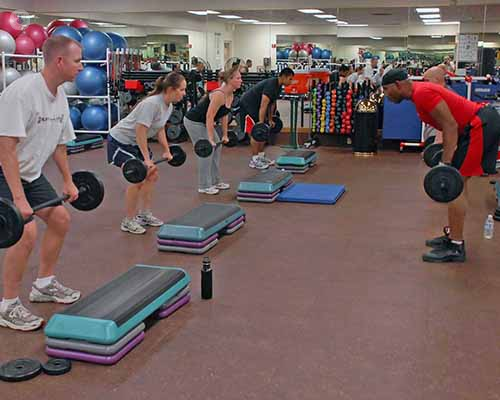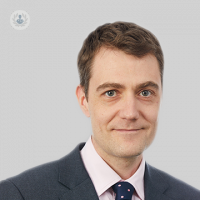Treating knee cartilage damage with stem cells
Written by:Cartilage stem cell transplantation is a relatively new and innovative procedure that has been performed in the last few years. Mr James Donaldson, a leading orthopaedic surgeon, explains this highly innovative procedure. Previously, a procedure known as autologous chondrocyte implantation (ACI) was performed which transplanted mature cartilage cells into a damaged knee. This was done in two operations: the first to take a biopsy of healthy cartilage from the knee and the second to insert the cartilage back into the knee following growth in a laboratory. The new stem cell procedure is carried out in one operation as follows:
- Firstly, suitability for the procedure is determined by an MRI scan
- Stem cells in the bone marrow are harvested from the pelvic bone.
- Harvested bone marrow is then processed by a centrifuge in the operating theatre. This process concentrates the stem cells.
- The concentrated stem cells are then placed on a collagen scaffold shaped according to the knee cartilage defect. This scaffold is then inserted into the knee defect via a small open procedure.

Who is suitable for this procedure?
This procedure has been shown to have great success in younger patients, aged 55 years or less, and can help to improve the symptoms of the following:
- Trauma – knee injuries, such as a blow to the knee where the cartilage is damaged or dislodged.
- Osteochondritis dissecans – a condition that develops in joints where a segment of bone and cartilage detaches from the knee due to a reduced blood supply.
- Early arthritis – due to wear and tear where cartilage is worn out in one region.
Why do patients choose this procedure?
Patients who are deemed suitable for this procedure are usually very excited to have this done, as often it follows months or years of pain and other failed treatment attempts. Hence, our patients are often very keen for intervention. Additionally, the idea of using your own cells to regenerate your own body is a very alluring concept and something that appeals to most patients.
What is the recovery like following this procedure?
In the first week or two there is some pain, which can be managed by painkillers. Afterwards, patients generally do not require any pain management. There will also be some initial swelling. Six weeks following the operation, patients should be able to walk without the use of crutches. Full recovery can take up to six months as the cells need to mature into normal cartilage. Although this may sound like a long recovery period, it is important to keep in mind that stem cell transplantation protects against future arthritis, whilst other procedures do not. If stem cell transplantation was not available to such patients, arthritis would be the eventual result in the damaged knee.
What is next for cartilage stem cell transplantation?
This is currently the most innovative method available for cartilage regeneration in the knee, with just a few centres offering this procedure in the UK. The next step for this procedure could involve performing it arthroscopically, rather than as open surgery.
Knee cartilage stem cell transplantation has shown improvements in pain, function and clinical outcomes in patients so far. The trend towards cartilage regeneration has also been recognised by the National Institute for Health and Care Excellence (NICE) who changed its recommendation recently for treating damaged knee cartilage – suggesting ACI as a first-line recommendation in selected patients.
If you are interested and would like to find out more about this procedure, make an appointment with a specialist.


